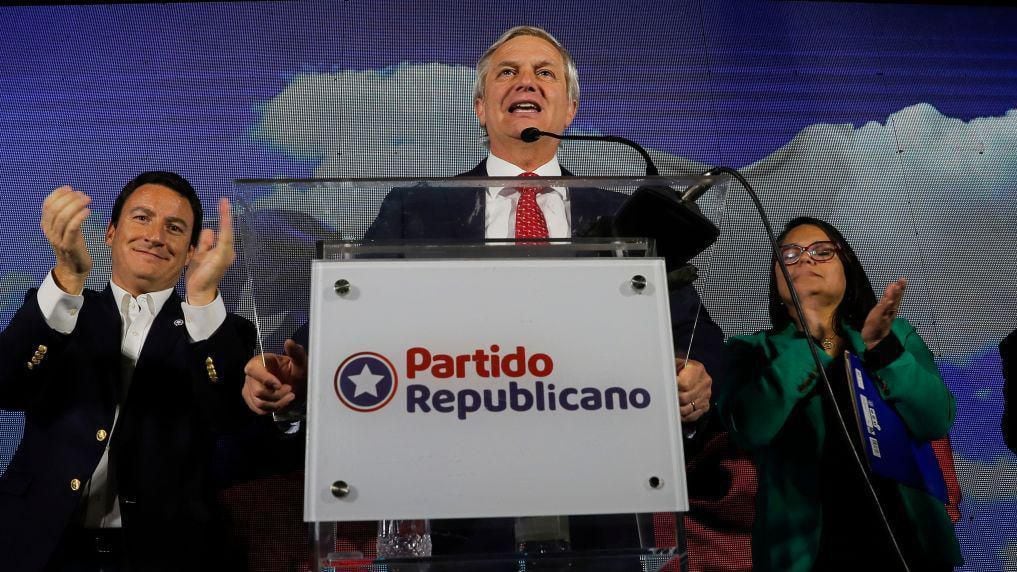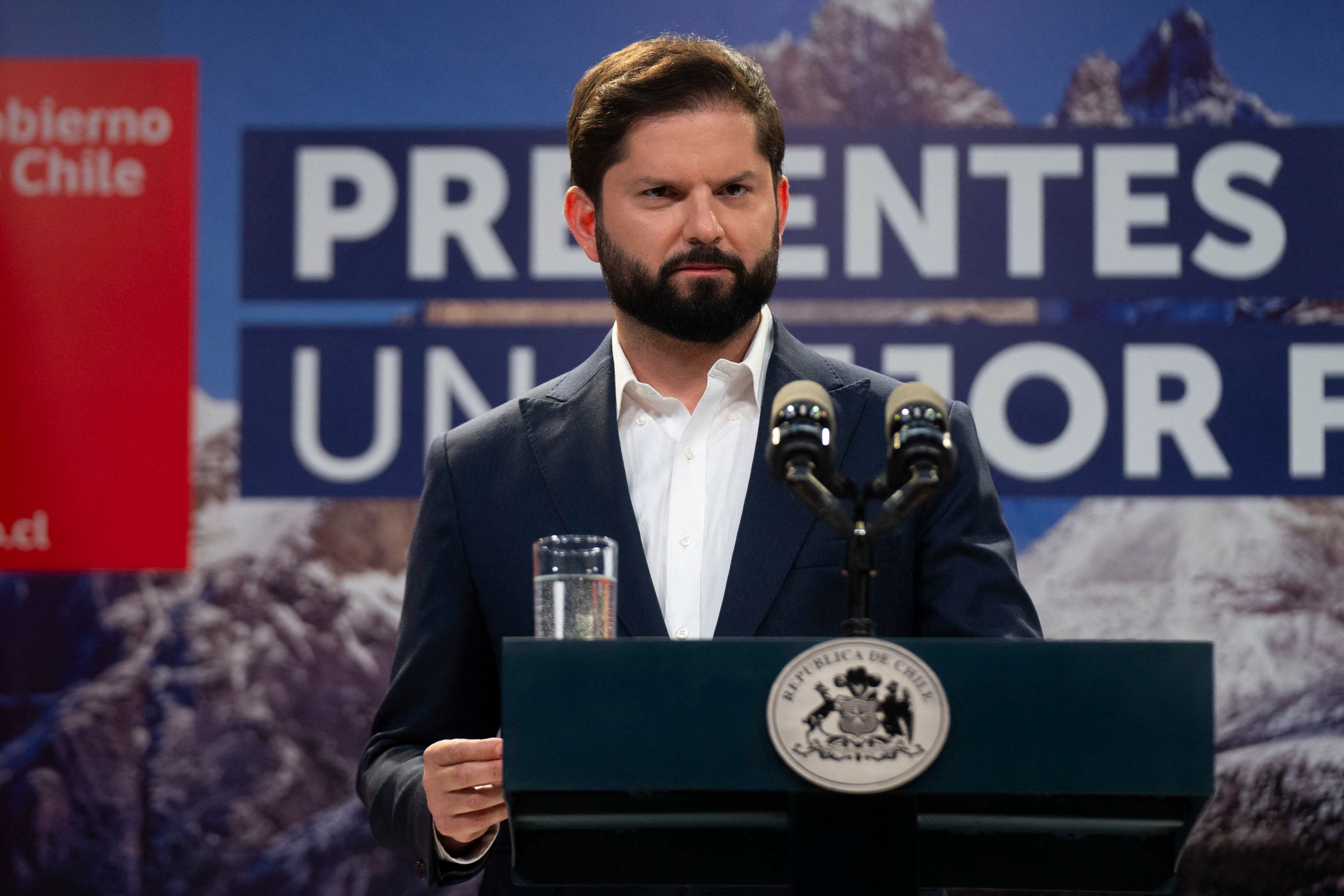This Sunday, the 17th, for the second time in just over a year, the Chileans They refused at the polls to change the Constitution, ending the extensive debate to replace the Magna Carta promulgated during the military dictatorship of Augusto Pinochet.
TO LOOK: A moderate Chile rejects two polarizing projects and maintains Pinochet’s Constitution
In September 2022, the proposal then presented by the Constitutional Convention was rejected by 61.89% of the population and supported by only 38.11%. The project prepared by the majority of representatives of the Chilean left was harshly criticized by conservatives, who claimed that the proposal was too extremist.
For this new occasion, the No option won again, although the percentages were slightly adjusted. According to the Chilean Electoral Service (Servel), the ‘rejection’ won with 55.76% of the votes over the ‘approval’, which obtained 44.24%.
With this, Chile broke the world record for rejecting a proposal to replace the Constitution twice in just 16 months.
Unlike the 2022 proposal, this new Magna Carta proposal had the main criticism of being too right-leaning. Several analysts consulted by Chilean media commented that both results showed that the country was not seeking to lean towards either extreme of the political spectrum.
“Chile performed relatively well. The middle class has grown a lot and this middle class wants to improve the situation, but it doesn’t want radical changes like in Argentina due to the economic crisis or in Peru where people are asking all politicians to leave. In Chile, people do not want to refound the country, this was evident both last year and this year. Chileans are uncomfortable with the problems that exist, but they do not seek to refound the country“, explains the The trade Chilean political analyst Patricio Navia.
Once the results were known, José Antonio Kast, leader of the Republican Party and current main opponent, came forward to acknowledge his defeat. “We didn’t know how to convey to Chileans that this option was better”, he lamented in his self-criticism.
It now remains to be seen what impact this result will have on the aspirations of the right over the next two years. The first challenge in this regard will be the local elections in October 2024, although the biggest concern will evidently be the presidential elections of 2025.
“Naturally this was the proposal of the right, and in particular the Republican Party. The rejection is an obvious setback for Kast and he acknowledged that in his speech. This raises doubts about whether Kast really has what it takes to be president of Chile, after a majority rejected his proposal. However, there is still time to correct course and correct mistakes. It’s a big setback, but it doesn’t mean I’m out of the race.”, says Návia.

On the side of the government led by Gabriel Boric, however, it is difficult to talk about victory. The election of the president was largely catapulted by citizens’ fatigue with the country’s political and social system. The best expression of this fatigue was the social uprising that broke out in 2019 and from which this entire constitutional debate arose.
“Sunday’s result gives the government a new lease of life, but it doesn’t help much. In the end, this was a defeat for the Government. The “best option” for them was to maintain Pinochet’s Constitution, the one that Boric wanted to revoke. And the ‘worst option’ was to stick with the Constitution of Kast, who aspires to be a presidential candidate in 2025. Along these lines, for the government it was preferable to stick with the option of a dead man than that of a potential living candidate.”, says Návia.
“The left’s obvious defeat is that they tried to replace Pinochet’s Constitution and promulgate a new one, but that didn’t happen. Now the majority of Chileans have constitutional fatigue and we will be left with Pinochet’s Magna Carta” he adds.

On Sunday night, Boric issued a message to the nation in which he lamented the polarizing effect that the constitutional debate had on the country. “The result of this plebiscite, more than a celebration, is a strong warning“, he said.
In his speech, he also assured that “During our mandate, the constitutional process is closed, emergencies are different”.
This Monday, the 18th, the Executive maintained the message of “turn page”, this time by government spokesperson, Camila Vallejo, who repeated Boric’s message by ensuring that “We hope that yesterday’s result will be a learning experience, which involves great reflection on everyone’s part, learning to act, to get to work to reach the necessary agreements on pensions and the fiscal pact.”.
But is there any possibility that the debate over a new Magna Carta will resurface in the near future? Navia rules out for now that this is possible, mainly due to the lack of political gain that such a proposal would imply.
“IPolls show that people are constitutionally tired and do not want to continue discussing this issue. So the candidates who present this proposal probably won’t have much support, people don’t want it anymore. This implies that the debate is already over, but we will probably have others on how to reform the current Constitution in Congress“, Explain.
Source: Elcomercio
I am Jack Morton and I work in 24 News Recorder. I mostly cover world news and I have also authored 24 news recorder. I find this work highly interesting and it allows me to keep up with current events happening around the world.

:quality(75)/cloudfront-us-east-1.images.arcpublishing.com/elcomercio/O6CDYRS7LBBXBHFATYLRH2ME34.jpg)



:quality(75)/cloudfront-us-east-1.images.arcpublishing.com/elcomercio/S2EVWZA2ZJF77MI4RZGZ5ODHLE.jpeg)
:quality(75)/cloudfront-us-east-1.images.arcpublishing.com/elcomercio/6T5VR63ZIVHVHIZXGIZCSUVBCM.jpg)
